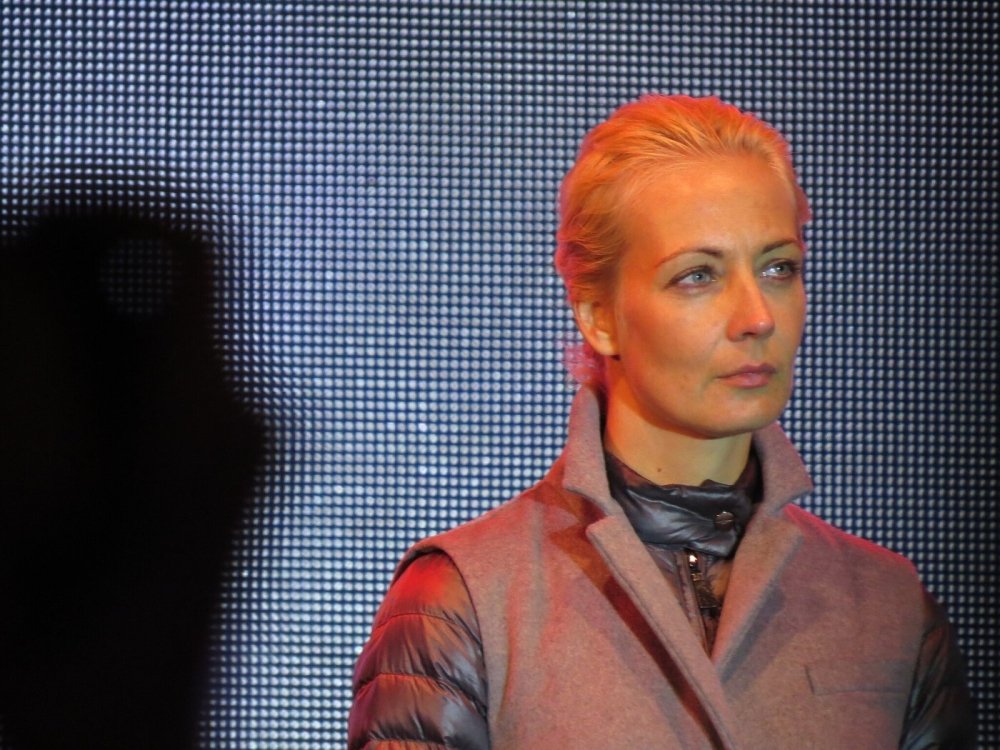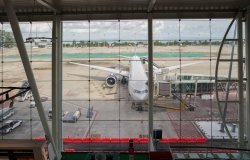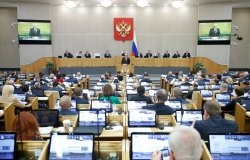
A blog of the Kennan Institute
Navalny’s Heroism in the Face of Putin’s Revenge

putnik - Wikimedia - https://commons.m.wikimedia.org/wiki/User:Putnik
The murder of Alexei Navalny was not an act but a process. It took several years. Putin’s attempt to poison Navalny in 2020 with the nerve agent Novichok was preceded by years of stalking by FSB officers. When he survived the near fatal poisoning, Putin put him in prison for nineteen years.
Incarceration in a Russian prison is not just a restriction of freedom but a humiliating and physically intolerable existence. The daily routine is rigid. Only at certain times are you allowed to go out for fresh air, to sit down, to lie down, or to read. Moreover, Navalny also spent almost a year in a punishment cell under very harsh conditions. He was sent there on ridiculous pretexts: for a button left unbuttoned, for washing his face at the wrong time.
Shortly before his death he was transferred to the “Polar Wolf” penal colony, north of the Arctic Circle. This is the realm of night and cold. In one of his letters, Navalny wrote that not a single leaf could be seen through the window of his cell and that he was not taken outside for a walk, only to a neighboring cell. In this penal colony, Alexei’s ability to receive and send letters was limited. Putin wanted to isolate him.
"Who needs him? If [we] wanted to [poison him], [we] would have finished him," was Putin's answer to a question about Navalny in December 2020, when Alexey, who had been poisoned by Putin, was in a Berlin clinic. Now it was time to "finish him." On the day of Navalny's death, Putin seemed happy.
An Autocrat’s Revenge
Why kill a political rival when he stands no chance of getting out of prison in Putin's lifetime? The first motive is personal: revenge. Navalny showed everyone that the emperor had no clothes. That Putin is an old man, greedy, with bad taste (his palaces), an unbridled lust for power. Putin could not forgive Navalny for this humiliation and for the fact that Navalny was not afraid of him at all.
However, there was also a second, political motive. Since the mid-2010s, Navalny had become Putin's main political rival: a man who represented another version of Russia's political future, another possible trajectory for its development. He started out as a politician for the generation of twenty- to thirty-year-olds. Like many others, he made mistakes early on, such as supporting a nationalist agenda and the war in Georgia, but he moved on from these positions to fervently wanting a better future for Russia and gradually became a universally respected figure.
I had conversations with Alexei, and I can say with certainty that had he been at the helm during the transition period, he would definitely not have become a dictator-autocrat. He understood and repeatedly said that the most important thing was to build the institutions of a sustainable democracy. In his last years in prison, he thought a lot about the opportunity Russia had missed in the early 1990s, and how not to miss the next one.
After twenty-seven years in prison, Nelson Mandela won the Nobel Peace Prize, became president of South Africa, and lived for another twenty-three years. Navalny seemed destined to follow a similar path, and this is exactly what Putin wanted to avoid. The Russian regime is worse than South African apartheid; it prevented Navalny from going down that road.
Putin feared a free Navalny. His ideas would have been very popular in a free state with real political competition. Thanks to social media, his messages from prison spread widely. It was clear to everyone what he was in prison for, and why.
The extent to which Putin wanted to silence Navalny can be seen in the unprecedented arrest of three of his lawyers, who were helping Alexei communicate with the outside world. They were accused of participating in an extremist community led by the defendant and placed on the list of extremists. Two other lawyers were arrested in absentia.
Putin’s Three Wars
Putin is waging war on three fronts. One is against Ukraine. The second is against the West. And the third is against Russians who want a different future for themselves and their country from the one Putin has prepared.
Navalny knew how to change minds and was good at dispelling the despair and sense of hopelessness that so frequently afflict the Russian opposition. He knew very well that the most powerful weapon of the oppressor is the mind of the oppressed. Navalny in his actions epitomized the words of Steve Biko, the South African anti-apartheid fighter and victim of the apartheid government: "Change the way people think and things will never be the same again.”
The more the senseless deaths in Russia’s war against Ukraine piled up, the stronger grew the anti-war sentiment in Russia and the better the chances for Navalny. Putin had something to worry about.
Putin creates fear and feeds on it. He started prosecuting Navalny in 2009, but in 2013, when the case came to court, Putin was still afraid to put Navalny in jail. He was given a suspended sentence.
Throughout the 2010s, Navalny gained more and more political skills. His influence on people grew in parallel with the growing obsolescence of Putin's regime. It took a war to prolong the life of that regime. Moreover, the political project embodied by Navalny, which at first seemed insignificant to Putin, gradually became a major political threat to him. Putin then decided to resort to poisoning.
However, Navalny survived the 2020 episode, investigated his assassination attempt, spoke to the poisoners, and returned to Russia. "Do you dare kill me?" Navalny seemed to have asked. "I'm not afraid of you," he told Putin, insulting him, notes the journalist Arkady Ostrovsky.
Times of Terror
Russia, where it has become possible to poison and imprison a Navalny, is a different country from before. A major war has become possible, the level of repression has increased dramatically. The country where it has become possible to kill a Navalny is a completely different country, even compared to 2022–2023. This is the beginning of a new era in which acts of terror will be carried out with extreme brutality. Russia today is a dictatorship that is maintained not by bribery, not by deception, but literally by terror, by the fear of being killed.
Now there will be even fewer people in the world who think it is possible to talk to Putin. For many in Russia and in the world, he has lost all legitimacy as president. Agreements about the future of Russia will be made at a table where murderers are not allowed—should Russia ever move toward becoming a "normal country."
Navalny's main aim was to dispel the illusion that it was impossible, that the struggle was hopeless, that there was no point even in trying. In the early 2010s, he gave Russians a taste for politics again. This forced the Kremlin to move more quickly toward a repressive regime, one in which politics was forbidden. In the last decade of his life, Navalny sought to counter advancing repression by restoring a taste for resistance.
Navalny believed that Russia could become a normal democratic country. He rejected the idea that Russians were condemned to live under a dictatorship. He rejected the cynical “everyone steals” and “there is no truth," and urged Russians of all walks to think that the democratic ideal was feasible in Russia.
If he turns out to be right, he will become a founding father of democratic Russia, someone who sacrificed his life for this ideal and did everything to bring it closer. Future Russian history books will take note of a hero who challenged a twenty-first century czar. We can be proud of him and learn from his example what it means to be a citizen. There is no democracy without the founding fathers.
The opinions expressed in this article are those solely of the author and do not reflect the views of the Kennan Institute
See our newest content first.
Subscribe to receive the latest analysis from the Russia File
About the Author

Boris Grozovski
Journalist and public educator; author of Telegram channel EventsAndTexts

Kennan Institute
The Kennan Institute is the premier US center for advanced research on Russia and Eurasia and the oldest and largest regional program at the Woodrow Wilson International Center for Scholars. The Kennan Institute is committed to improving American understanding of Russia, Ukraine, Central Asia, the Caucasus, and the surrounding region though research and exchange. Read more










